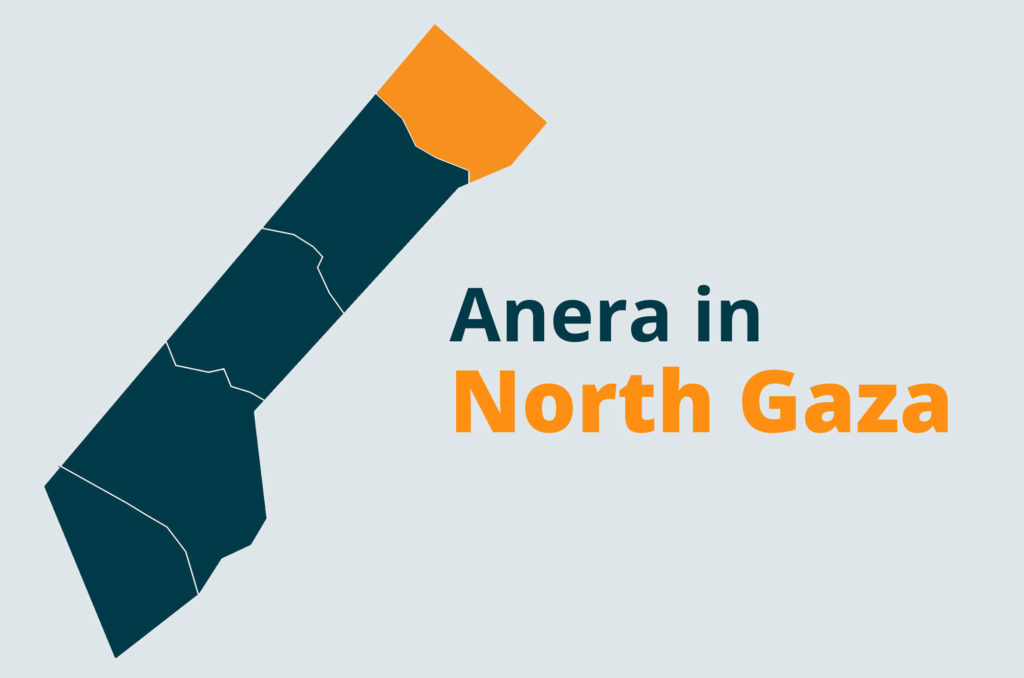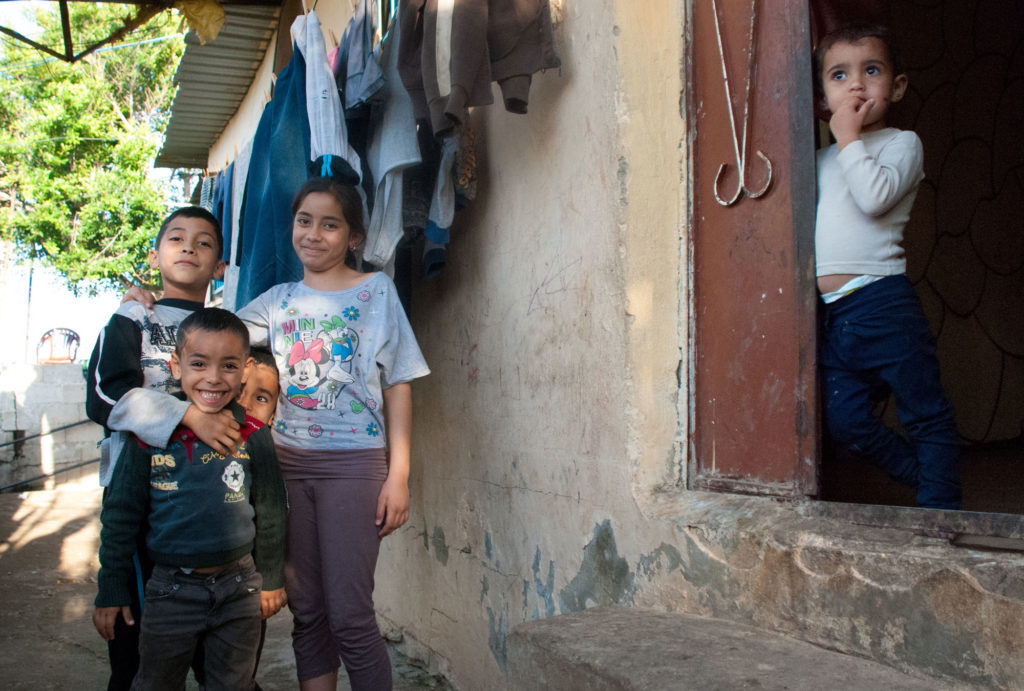Feb, 2022
Medical aid shipment helps ensure vulnerable Jordanians and Palestinian and Syrian refugees continue to receive healthcare.
Jordan’s efforts to contain the spread of COVID-19 have led to economic hardship, putting pressure on healthcare providers that are now struggling financially with the burden of continuing to support patients with chronic illnesses. This is especially the case for vulnerable Jordanian populations and refugees, many of whom cannot afford on-going treatment.
Thanks to a generous medical donation from International Health Partners, thousands of patients in Jordan are now receiving treatments that they otherwise could not afford.
Anera recently completed distribution of this shipment of medicines to a diverse group of healthcare partners that serve in-camp and out-of-camp refugees as well as vulnerable Jordanians and children and women survivors of gender-based violence. The recipients include Arabian Medical Relief, Jordan Medical Aid for Palestinians Society, the Institute For Family Health, and the Jordanian National Red Crescent Society.
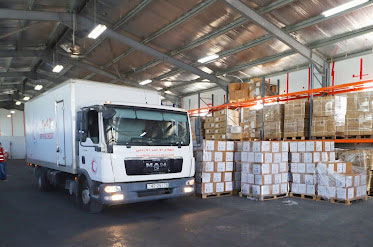

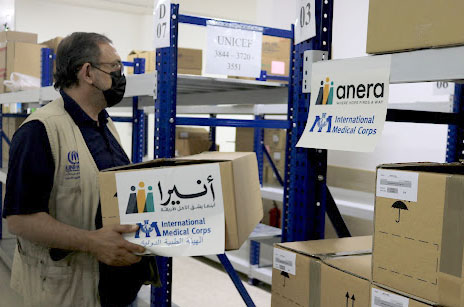

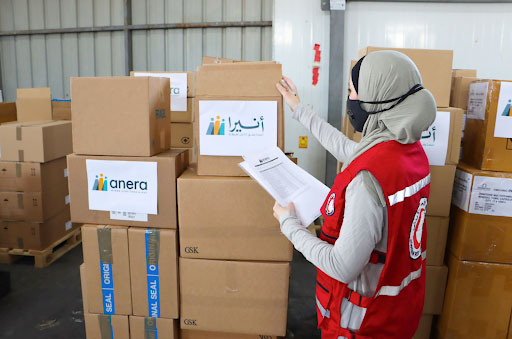

The donated medications are now being used to treat chronic illnesses such as hypertension, diabetes, upper respiratory tract infections and urinary tract infections. The thousands of patients benefiting from the donated medicines include those being treated for asthma, diabetes, high blood pressure, allergies, burns, Infections, vitamin deficiencies, UTIs, gastrointestinal fungal infections & intestinal worms.
Through this generous donation, doctors are able to prescribe medication from their clinic pharmacies, provide the right doses, prepare a treatment plan for patients, monitor and evaluate patients’ treatments, and provide follow-up consultations for patients with each prescription. The medications relieve a financial burden on medical centers and especially for patients who have chronic diseases and are unable to afford the cost of the medicines.
Anera has distributed the donated medical aid to health clinics across Jordan, including in Zaatari and Azraq refugee camps; Jordan’s largest northern city, Irbid; the Palestinian refugee camps of Gaza, Hitteen and Talbieh; and the governorates of Amman, Irbid, Mafraq, Blaqa, Tafilah and Ma’an. The donation ensures that high-quality free-of-charge medications are available to Jordanians as well as Syrian and Palestinian refugees living in difficult economic conditions.
The case of Gaza Camp reflects the impact of COVID-19 on conditions facing vulnerable families across Jordan. Squalid living conditions and a worsening economic situation were deepened by the pandemic when almost all families who depend on daily paid jobs lost their income. Anera’s medicine shipments are helping families receive the health treatment they need with dignity.
As a result of the COVID-19 pandemic, Jordan faces significant economic and health challenges that are exacerbated by its ongoing refugee crisis. In response, the government launched two social protection programs in 2020 and 2021, which aimed to support vulnerable households and businesses.
On June 16th, 2021, the World Bank approved $63.75 million in additional funding to support the on-going Jordan COVID-19 Emergency Response Project (ERP), which ensures safe, efficient, and equitable access to COVID-19 vaccines. The World Bank funding aims to enable Jordan to vaccinate 75% of its adult population. Despite its economic and social challenges, Jordan takes pride in being one of the “first” countries in the world to include refugees as vaccine beneficiaries per the National Deployment and Vaccination Guide for COVID-19. With additional funding support, the ERP will improve COVID-19 case management for Syrian refugees living in camps and in host communities.
By November 2021 there were 12,456 confirmed, active cases of COVID-19 in Jordan. Cumulative cases total 823,919 with more than 10,718 confirmed deaths since the beginning of the pandemic to date. Jordan started its COVID-19 vaccination program on January 13th, 2021, and has since administered 7,019,525 doses of various COVID-19 vaccines, which is enough to have vaccinated only 33% of the population. Through additional financial support, Jordan aims to acquire vaccines from a range of sources to provide its citizens safe, regulated access to a variety of vaccination options.
Overall, COVID-19 cases among refugees living in camp settings remains well below the national average, with 3.1% of the refugee in-camp population testing positive compared to 7.8% of the total Jordanian populations. As of August 31, 2021, a total of 4,058 refugees have tested positive since the onset of the pandemic, of which 98% have recovered and 49 have died. These numbers indicate a positive and successful response plan to manage and impede the spread of the virus, especially in overcrowded and vulnerable settings where cases could have been much higher.
International organizations continue to push vaccination campaigns.
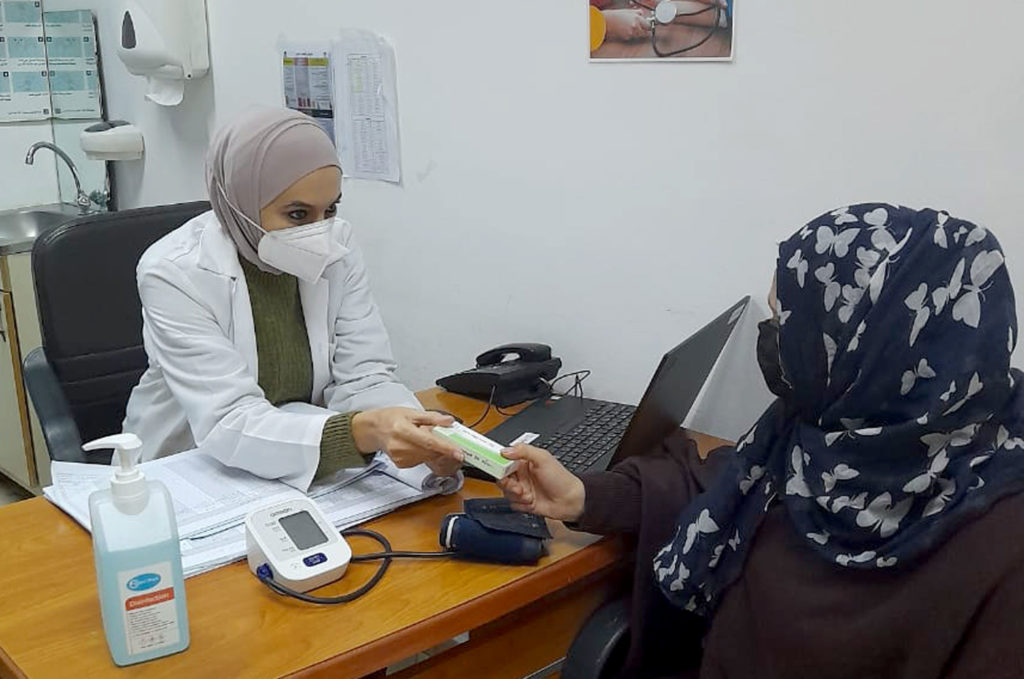

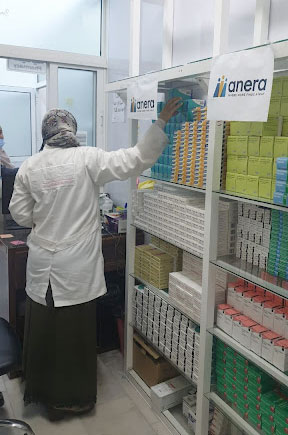

Bassam Safarini is Jordan Medical Aid for Palestinians Society’s lead general practitioner. The institution sees as many as four cases per day of patients with upper respiratory tract infections. These infections affect the nose, sinuses, pharynx, larynx and large airways. Left untreated, they can lead to more severe illnesses such as acute bronchitis, influenza, and respiratory distress syndromes.
Dr. Safarini says “the paracetamol and amoxicillin we received helped me treat hundreds of children and adults in Gaza camp.”


"The [medicines] we received helped me treat hundreds of children and adults in Gaza camp.”
The life-changing impact of this medical aid is illustrated by the case of a patient with polycystic ovarian syndrome who was struggling with infertility. Although still in her 20s, the woman had been trying to conceive for years and visited the Institute For Family Health reproductive health clinic often. Her frustration with not being able to have more children was coupled with feelings of guilt and depression.
The clinic physician prescribed metformin, which improves insulin sensitivity, to address some of the symptoms of her ovarian syndrome. After two months of treatment and counselling provided by the doctor, the patient’s menstrual cycle regulated and her symptoms improved. Not long after, she finally became pregnant. The patient is overjoyed that she is now able to successfully manage her condition and conceive.
Thanks to International Health Partner’s shipment of over a dozen different kinds of medications, Anera has distributed the medical aid to health clinics across Jordan, ensuring that thousands of patients from some of the most vulnerable populations in Jordan receive the vital medical treatment they need for their chronic health conditions.

